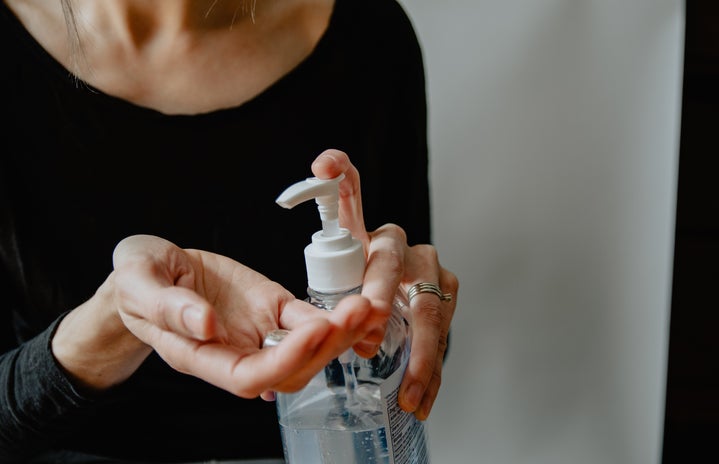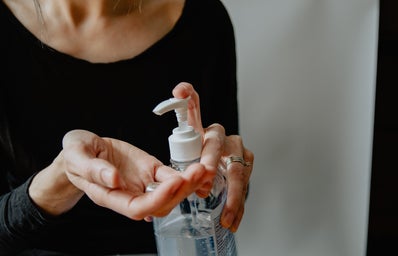Every corner of our social lives has been cluttered with updates – real and fake – about the new virus shaking the game. As with any major historical event, COVID-19 has revealed to us a few things about society that numerical and societal minorities are all too familiar with.
Socialist policies aren’t that slow or difficult to implement
People like Bernie Sanders have been pushing for socialist policies to be put in place, yet the arguments that there “aren’t enough state funds” or that “making laws takes time” have been used and worn out time and time again. A great deal of literature and conversation around addressing social problems have attributed the inaction of state to privilege. In South Africa, we have been crying, striking and petitioning for the state to address gender-based violence, poverty, illiteracy and other issues directly and efficiently.
To this day, the RDP housing project hasn’t been revived, pension grants aren’t sustainable, minimum wage rate has not been increased to a liveable minimum, essential foods and water are still expensive and the registered sex offenders list is still not public knowledge. These are all issues that either don’t affect the middle class/rich, men, heterosexuals, the young, or all the above. COVID-19, however, has primarily targeted the travelling class, which also happens to mostly be white people and the upper-middle class. Now that a new demographic has been affected, we are seeing big, swift governmental decisions being made to protect the population – something everyone else has been waiting on.
What we’re seeing now, more than ever, is that socialist policies aren’t impossible. They just won’t be implemented or actioned until they affect the social majority and the upper echelons.
Comprehensive and affordable healthcare is attainable
Since the beginning of time, people have been begging for comprehensive and affordable healthcare. Whether you’re living in a better-developed country or in a post-colonial society, you should have noticed that people of colour, womxn, disabled people and people with chronic and mental illnesses have been pushing for state funds to be used to address better access to healthcare. Until recently, we haven’t seen anything serious happen, because our issues aren’t universal and don’t fit with states’ “more money more profit” brands.
The private healthcare system has picked up the government’s slack and put a heavy price on convenience. Issues of people not being able to afford insulin, regular check-ups, and other essentials have been over-looked. Since COVID-19 is indiscriminately affecting people, the private healthcare system has finally been threatened with nationalisation; a prospect that the state has avoided, despite its social benefit. While South Africa’s government is avoiding that decision, countries like Spain have already mobilised the nationalisation of private medical institutes to accommodate anyone and everyone who needs aid.
Capitalism never rests
In a time where people are dying at alarming rates, capitalism is doing what it does best: milking every situation. Hand sanitizer, surgical masks and single-purpose gloves are over-priced. Health departments and governments have actioned social distancing, yet have failed to action paid leave to allow people to stay indoors. Even though we’re witnessing governments take some steps towards an inclusive ‘greater good’, we can’t ignore how the state has allowed businesses to profit off panic and misinformation.
Racism is evolving
As a society, we’ve moved from overt expressions of racism to more covert ways. Still, racism is evolving. Before we can dissect how the expression of racism has changed, we have to make sure everyone understands what racism is and what it includes.
According to De La Rey & Duncan (2002), one of the better-known definitions of racism is “an institutionalised system whereby certain racialised groups are systematically dominated or marginalised by other racialised group(s).” This includes microaggressions, exclusionary practices on the grounds of race and the disapproval of systems that address racism (e.g. being angry at affirmative action), amongst other things. Racism is not the same as racial prejudice/discrimination, because where anyone can be racially prejudiced, only people who benefit from current/past systematic racial discrimination can be racist.
If we look at the initial reaction to this outbreak, the overwhelming focus was on the origin of the virus as opposed to preventative and protective measures. Soon, we saw people accosting and assaulting Asian people based on “protecting themselves”, regardless of the Asian person’s contact with China (or the fact that punching someone you think is sick is…putting yourself at risk anyways).
We have seen that racism has been disguised as protecting one’s livelihood, something that distracted from the fact that there were (and still are) white people and Europeans/Americans who travelled to and from China, spreading COVID-19 as well. Still, we see state officials like Donald Trump calling the virus “Chinese Flu” and other members of the White House calling it the “Kung-Flu”, all while claiming that they carry no racial prejudice. Our inability to see racism when its being served to us by the media is what allowed Europe, the States and now South Africa to be caught in this pandemic; we were focused on race and not facts.
Everyone is a hypocrite
Another branch taken off the racism tree was blaming Chinese folk for “eating bat soup.” While wet markets deserve the ethical critical eye, I think it’s bizarre that people who aren’t vegan are wildly angry. Firstly, no commercially-farmed meat is ethically killed. Secondly, how can we complain about Oriental food norms when some Europeans eat blood sausages and some of us eat tripe? I’ve seen shows where people go around eating ‘exotic foods’, yet here we are, pointing the hypocritical finger. When do we ever point the finger at each other for animal cruelty?
At the same time, there is the argument that Asians are dirty and eat dogs and cats. Even if dogs/cats were a part of the Asian diet, the uproar seems to be from the Western context that dogs and cats are domestic animals. If Hindu people called the ethical police on us for eating beef because cows are a sacred animal; we would be the first to say that everyone’s context is different. Still, for as long as we aren’t vegan or attempting to reduce our animal product consumption, we should check our own behaviour. It’s highly unlikely that if we contracted Avian flu or H1N1 (‘swine’ flu) we would blame it on ourselves or force meat farms to be closed.
Reactance Theory
When COVID-19 first came out in China, everyone was sure that the right course of action was to close borders and keep China contained. However, because not everyone in China was a Chinese national at the time, everyone travelled back home and spread COVID-19. Because of how intensely the media and public racially coded COVID-19, everyone was worried about keeping away from Asians, as opposed to keeping away from anyone who has been to Asia. Now that it’s our turn to practice social distancing, we’re having bouts of psychological reactance. ‘Reactance’ in psychology refers to the urge to do something more because it is prohibited or ill-advised. We’ve seen this with drug use, under-age drinking and now: staying at home.
Really though, wash your body and hands. Stores are all out of milk, toilet paper, masks, gloves and sanitizer, yet soap and Vitamin C are always fully in stock. Our public’s ability to be panicked, yet wildly misinformed, is what allowed us to get to the point of the privileged and moneyed panic-buying and leaving stores barren. If you are able to, avail yourself or your resources to help others who are in need. Buy gift vouchers to support businesses immediately and use the vouchers later when it’s safe to go shopping. Pay your domestic worker over leave. Buy food that you need, not all the food you can get. Support each other.


